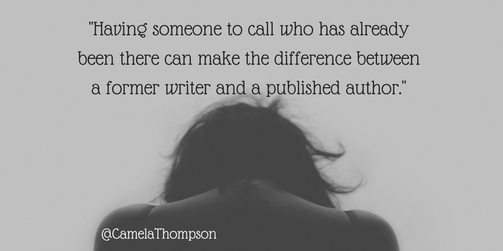|
by Camela Thompson Early in October I had the pleasure of participating on a panel on Women's Issues in Publishing. As we got ready for the presentation and looked at Patricia's deck (which can be downloaded here and has some excellent resources), we were both excited and depressed. The numbers are clear. There is still a disparity in publishing between men and women whether you're looking at who gets published, who gets reviewed, or who gets better pay (and a management position) in a publishing house. We've found stories posted by women who've spoken out about how their books are labeled (titles and covers) and the greater success they've experienced querying under a gender neutral name. Even after all of these statistics, we still have articles like this where people express their worry over an emerging publishing workforce dominated by women. It's daunting. And spouting those statistics and first hand stories to women writers in the audience had the potential to be discouraging. It isn't too surprising we were asked the question: "What can we do to encourage women writers?" There are many things that have helped me as an author, and I'm sure many of these points apply to any writer.
Don't Shove Someone into a Genre My husband and I were watching Crimson Peak, and we burst into laughter when the protagonist was told that she needed to focus more on romance. We laughed even harder when she decided to type her manuscript to hide her feminine handwriting. Lance turned to me and said, "Some things never change." There is absolutely nothing wrong with romance. Just don't assume a woman writes romance. If she does write romance, don't assume the writing isn't amazing. I still run into the Genre Gender Bias. Resist Bad Mouthing Constructive criticism is a good thing. What I have a problem with is talking behind another writer's back or blasting someone all over the interwebs. I prefer to leave critique to the reviewers. I know this won't be my most popular point, but I think there is enough negativity for an author without me adding to it. I have opinions like anyone else, but it's something I continue to try to live up to. Mentor You'd think writing a story from beginning to end would be simple enough, but there are so many ways to get lost. I've experienced most of them. Navigating technology, marketing, and all of the other steps during and after publishing is also overwhelming. Having someone to call who has already been there can make the difference between a former writer and a published author. Beta Read No one should write in a vacuum. After months on a project, even the most glaring mistakes become sneaky ninjas. A fresh set of eyes is a great thing if those eyes come with constructive criticism. Consider the differences in the following examples and decide what you would rather receive as a writer: "I don't like the scene." "I don't think Jack's reaction is believable. If he reacts this way, there needs to be a reason portrayed to the reader. Otherwise, I would emphasize the shock someone would normally experience in this situation rather than amusement." Another important quality in a beta reader is the ability to point out what the writer does well. A long list of problems without any positive points would discourage anyone. Collaborate It's awesome to see someone I've helped in some way succeed whether it be a pitch workshop, a beta read, or help on a marketing campaign. You don't need to donate the time it would take to mentor or beta read to have an impact. Kind words at the right time can make all the difference. There have been a lot of achievements women can be proud of. The all time Best Seller list on Amazon is dominated by women, and the New York Times Best Seller list from a few weeks ago held a healthy share. Women have blazed some very impressive trails, and it's up to us to keep raising the bar. Collaboration may be the key. How do you prefer to be encouraged as an author? Is there something you would add to the list?
1 Comment
11/9/2015 05:21:06 am
I agree with all of the above, and I will also encourage people to find avenues for being active in their corner of the community. For example, I have friends with kids going into middle school, and I know they'll be looking at curriculum. Kids get assigned and suggested reading pretty early these days--how many of those books are written by women? And what KIND of classics written by women? Is it all "Wuthering Heights?" Or do we get some "Frankenstein?" We form our unconscious biases at a pretty young age, so even though "Pride & Prejudice" is a great novel, let's not make that into the template for classic literature written by women.
Reply
Leave a Reply. |
Camela ThompsonFreelance writer and Dark urban fantasy author featuring vampires with bite. My BooksCategories
All
Archives
July 2020
|

 RSS Feed
RSS Feed